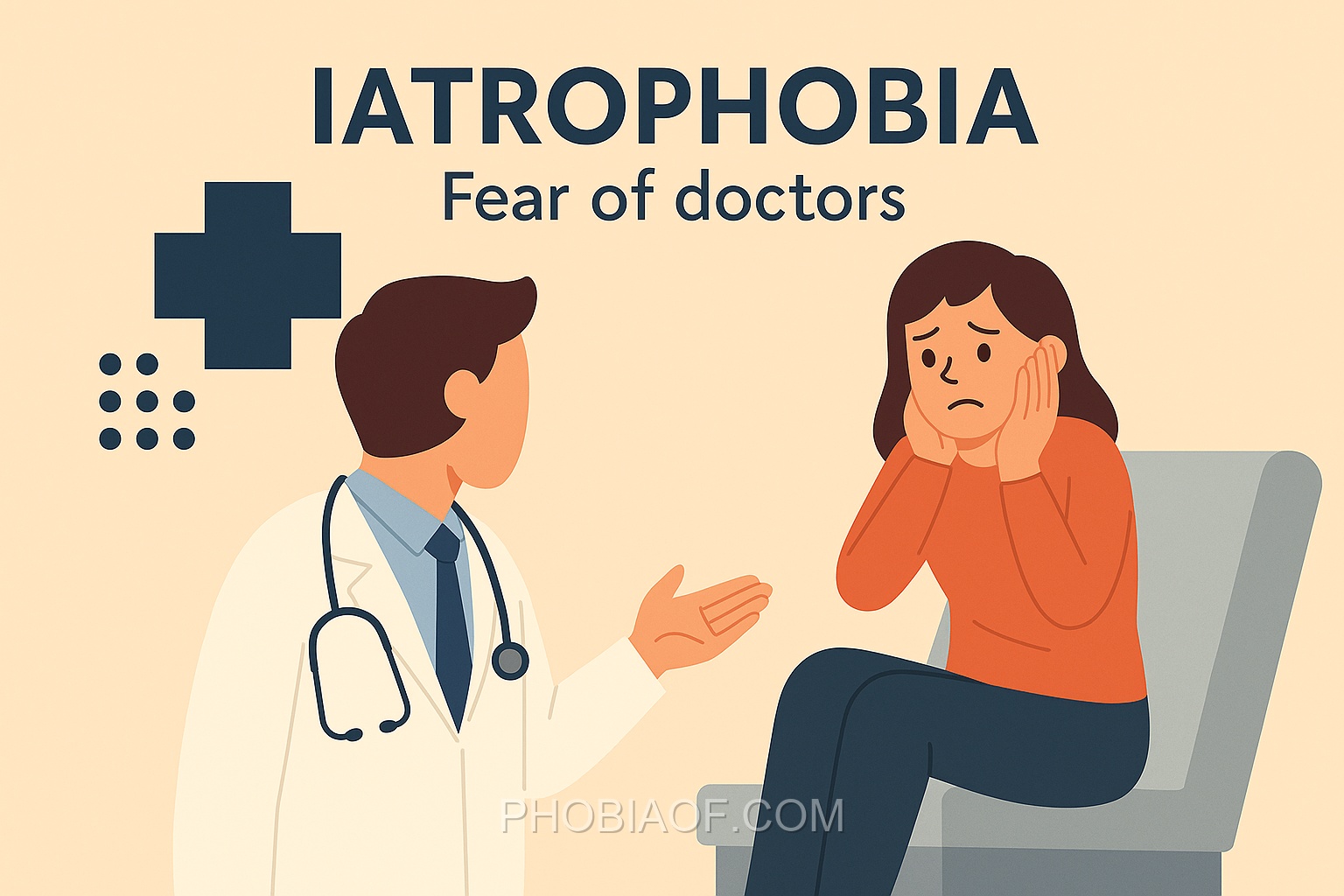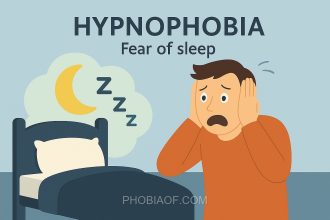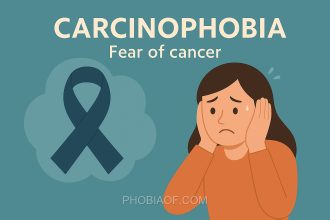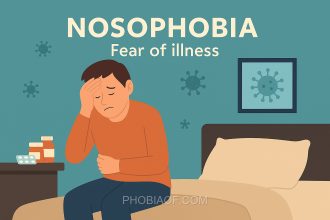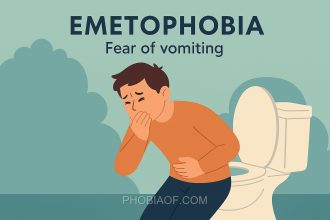Have you ever felt your heart race or palms sweat at the thought of visiting a doctor? If so, you’re not alone. This feeling might be related to a specific fear known as iatrophobia.
Iatrophobia, derived from the Greek words “iatros” meaning “healer” or “physician” and “phobos” meaning “fear,” is the intense fear of doctors or medical treatment. It’s more than just a fleeting discomfort; for some, it can be a debilitating condition that impacts their health and wellbeing.
People experiencing iatrophobia may avoid medical appointments altogether, leading to delays in diagnosis and treatment of potentially serious health conditions. The fear can manifest in various ways, including anxiety, panic attacks, or even complete avoidance of healthcare settings.
Understanding and addressing iatrophobia is crucial because it can prevent individuals from receiving necessary medical care. Compassionate support and gradual exposure to medical environments can help those affected to manage their fear. If you or someone you know is struggling with iatrophobia, reaching out to a mental health professional can be a valuable step towards overcoming this challenge.
Causes of Iatrophobia
Iatrophobia, the fear of doctors or medical treatment, can stem from various sources. Understanding these causes can help in addressing the phobia effectively. Below are some potential causes:
- Genetic Predisposition:
Some people may have a genetic predisposition to anxiety disorders, which can include specific phobias like iatrophobia. If a family member has a similar anxiety disorder, it might increase the likelihood of developing this fear.
- Traumatic Experiences:
Past traumatic experiences with medical professionals or environments can instill a fear of medical settings. This could be due to a painful procedure, a misdiagnosis, or a perceived negative experience.
- Learned Behavior:
Observing others, especially family members or peers, who exhibit fear or anxiety towards doctors can lead to learned behavior. Children, in particular, can be influenced by seeing a parent or sibling express fear or distress in medical situations.
- Psychological Factors:
Individuals with pre-existing anxiety disorders or heightened sensitivity to bodily sensations may be more prone to developing iatrophobia. This fear can also be linked to a fear of losing control in a medical setting.
- Environmental Factors:
The portrayal of doctors and hospitals in media can influence perceptions, sometimes exaggerating risks associated with medical care. Additionally, cultural attitudes toward health care can play a significant role.
Some interesting theories suggest that iatrophobia might be part of a broader evolutionary response, where fear of the unknown or potential harm leads to avoidance behaviors. Research is ongoing to understand these complex interactions better, but recognizing these causes is a crucial step in managing and overcoming the fear.
Symptoms of Iatrophobia
Iatrophobia, or the fear of doctors and medical settings, can manifest in various ways, leading to intense fear or anxiety when faced with the prospect of visiting a doctor. Recognizing the symptoms can be the first step towards seeking help and understanding oneself or supporting others. Here are some common symptoms associated with iatrophobia:
Physical Symptoms:
- Panic attacks, which may include a feeling of losing control or impending doom
- Excessive sweating, especially when thinking about or being in a medical setting
- Rapid heartbeat or palpitations when faced with the idea of a doctor’s visit
- Trembling or shaking when in or near medical environments
- Shortness of breath or difficulty breathing when thinking about seeing a doctor
Emotional and Behavioral Symptoms:
- Avoidance of medical appointments, even when in need of medical care
- Overwhelming dread or anxiety about potential medical diagnoses
- Feeling of detachment or unreality when in medical settings
- Intense fear triggered by medical equipment, uniforms, or the smell of antiseptics
- Persistent worry about health despite lack of symptoms, yet avoiding medical consultation
If iatrophobia is severe, these symptoms can interfere significantly with daily life, preventing individuals from seeking necessary medical care and potentially leading to untreated health issues.
Treatment for Fear of Doctors
It is important to know that iatrophobia, or the fear of doctors, can be treated and managed effectively over time. With the right approach, you can overcome this phobia and ensure it does not prevent you from receiving necessary medical care. Below, we outline various treatment options and coping strategies that have proven successful in helping individuals manage this fear.
Therapeutic Approaches
Several therapeutic techniques have been shown to be effective in treating iatrophobia:
- Exposure Therapy: This method involves gradually facing the fear of doctors in a controlled and safe manner. Starting with less intimidating situations, and slowly working up to more challenging ones, exposure therapy helps reduce anxiety over time.
- Cognitive-Behavioral Therapy (CBT): CBT focuses on identifying and changing negative thought patterns that contribute to your fear. By challenging these thoughts and replacing them with more balanced perspectives, CBT helps reduce the intensity of your phobia.
- Counseling: Speaking with a mental health professional can provide a supportive environment to explore the roots of your fear and develop coping strategies tailored to your needs.
Self-Help Coping Techniques
In addition to professional therapy, there are several self-help strategies that can complement your treatment:
- Relaxation Exercises: Techniques such as deep breathing, progressive muscle relaxation, and visualization can help reduce anxiety symptoms.
- Meditation: Regular practice of meditation can enhance your ability to manage stress and maintain a calm mindset when facing medical appointments.
- Support Groups: Connecting with others who share similar experiences can provide comfort and practical advice. Sharing your fears and hearing others’ stories can be empowering.
Medication
In severe cases, medication such as anti-anxiety medications may be considered. However, it is generally recommended to focus on therapy and coping skills as the primary means of treatment. Medication can be a helpful adjunct in certain situations but should be discussed with a healthcare professional.
Remember, seeking professional help is an important step if your fear of doctors is interfering with your daily life or preventing you from seeking necessary medical care. Overcoming iatrophobia is possible, and with the right support and strategies, you can manage your fear effectively.
Take the first step today by reaching out to a mental health professional who can guide you on your journey to overcoming this phobia.
Conclusion
Understanding the causes and symptoms of iatrophobia can be the first step towards empowerment and overcoming this common fear. By recognizing the underlying triggers and how they manifest, individuals can better address their phobia and take control of their health journey.
It is important to remember that many people successfully manage or even overcome their phobias with time, patience, and the right support. Whether through therapy, self-help strategies, or talking to a trusted healthcare professional, there are many avenues available to assist in overcoming iatrophobia.
Take the first step today by considering therapy or reaching out to a healthcare professional if you find your fear of doctors overwhelming. With the right approach and support, you can work towards a future where medical appointments are no longer a source of anxiety but a routine part of your self-care.
Remember, you are not alone in this journey, and with commitment and help, a life free from the constraints of iatrophobia is entirely within reach. Stay hopeful and informed, and know that overcoming this fear is a courageous step towards better health and well-being.
